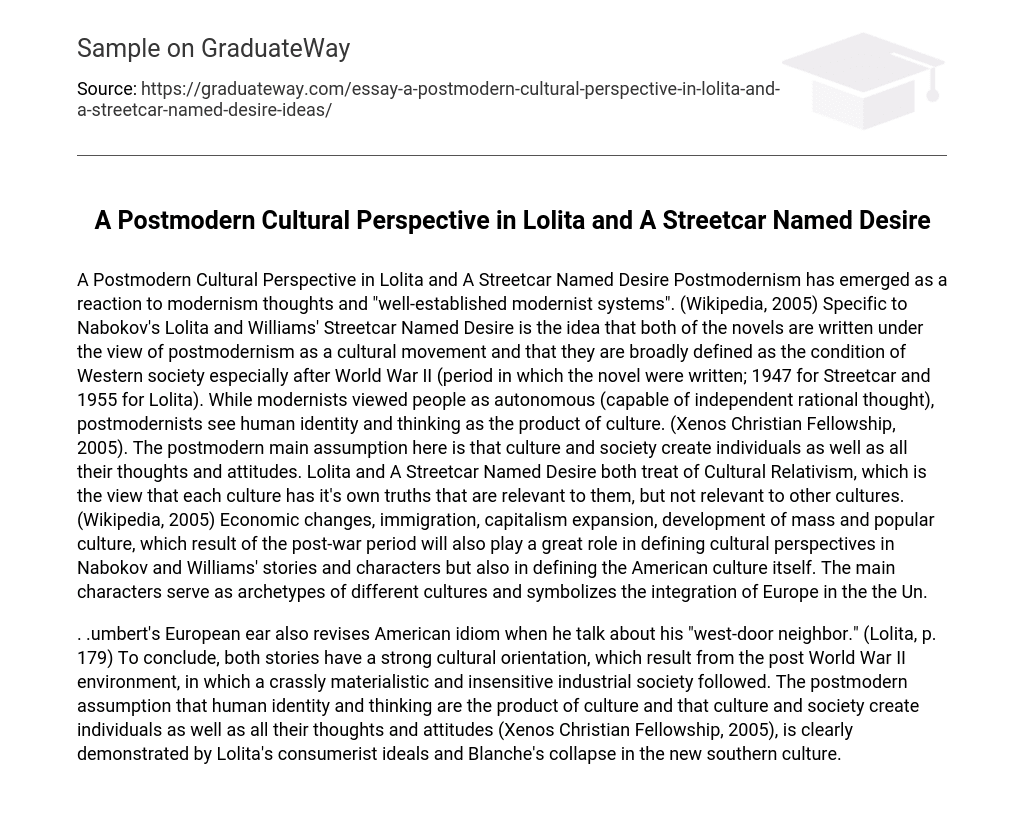According to Wikipedia (2005), both Lolita by Nabokov and A Streetcar Named Desire by Williams can be seen as examples of postmodernism, a reaction against well-established modernist systems. These novels reflect the cultural movement that emerged in Western society after World War II. In contrast to the modernist belief in individual autonomy, postmodernists argue that human identity and thinking are shaped by culture (Xenos Christian Fellowship, 2005). This perspective suggests that individuals and their attitudes are products of the society they belong to. Both Lolita and A Streetcar Named Desire explore the concept of Cultural Relativism, which asserts that each culture has its own truths that may not be relevant to other cultures (Wikipedia, 2005). The post-war period, marked by economic changes, immigration, capitalism expansion, and the development of mass and popular culture, greatly influences the cultural perspectives depicted in Nabokov and Williams’ works, as well as shaping American culture itself. The main characters in these novels serve as archetypes of different cultures and symbolize the integration of Europe into the United States.
. .umbert’s European ear also revises American idiom when he talks about his “west-door neighbor.” (Lolita, p. 179) Both stories have a strong cultural orientation resulting from the post World War II environment, in which a crassly materialistic and insensitive industrial society followed. The text clearly demonstrates the postmodern assumption that human identity and thinking are products of culture, and that culture and society shape individuals as well as their thoughts and attitudes (Xenos Christian Fellowship, 2005). This is evident in Lolita’s consumerist ideals and Blanche’s collapse in the new southern culture.





